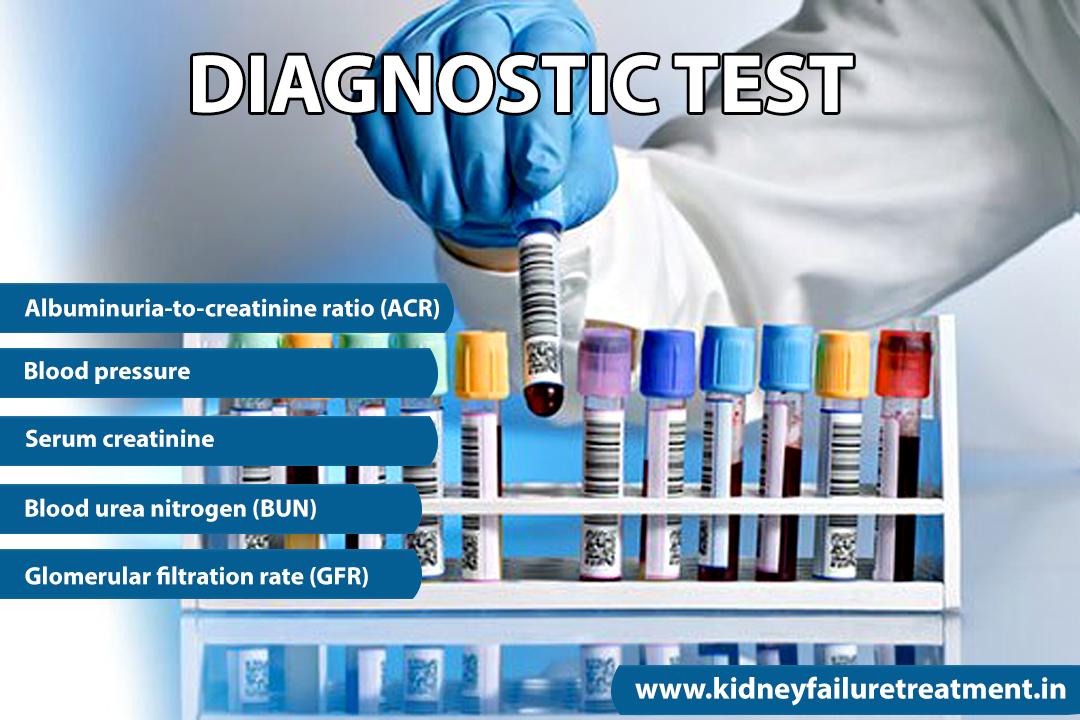What Tests Diagnose Kidney Disease? – Karma Ayurveda – Dr. Puneet Dhawan

Kidneys are the essential organs of the body. They hold the responsibility to remove toxins and waste from the body via urine. The waste expelled includes metabolic byproducts, infections, drugs, viruses, bacteria and excess fluids.
Besides filtration, kidneys also carry out various other functions like:
- Formation of waste fluid called urine
- Maintaining the water balance
- Secretion of certain hormones like renin, erythropoietin and vitamin D What Tests Diagnose Kidney Disease?
An abnormal functioning of the kidneys results in the imbalance of the fundamental jobs it performs. The damage caused to the kidneys affects its filtering units (nephrons) that further lead to impure blood circulation and sedimentation of toxins and waste in the arteries.
CAUSES AND SYMPTOMS OF KIDNEY DISEASE:
Kidney disease shows no signs in the early stages but as the impairment continues, it starts to develop numerous symptoms like fatigue, easy bruising, swelling in the legs, blood in the urine, decreased frequency of urinating, etc. Conducting lab test can only confirm the condition of kidney disease.
People with the following medical condition are more prone to kidney diseases.
- diabetes
- high blood pressure
- heart disease
- a family history of kidney failure
So, it is necessary to get a regular kidney checkup to prevent the advent of the problem. What Tests Diagnose Kidney Disease?
DIAGNOSTIC TEST:
Early detection of the diseases can help in preventing the further damage of the organ. Diagnosis of chronic kidney disease can help in making a safer and reliable choice of treatment. There are a couple of lab tests that are conducted to confirm the presence of kidney disease. These include:
- Albuminuria-to-creatinine ratio (ACR) – This test measures albumin (a type of protein) in the urine through spot urine sample test. The normal range of ACR is 30 mg/gm or less. Higher than 30 mg/gm creates a possible sign of kidney disease. What Tests Diagnose Kidney Disease?
- Blood pressure- The occurrence of hypertension (high blood pressure) is a leading cause of kidney disease. The test is conducted through the inflatable cuff, pressure gauge, and stethoscope. An instance of high blood pressure may indicate an elevated risk of CKD and requires further diagnostic testing.
- Serum creatinine: This blood test helps to measure the exact levels of creatinine which is a waste product from normal wear and tear of muscles. Serum creatinine greater than 1.2 for women or greater than 1.4 for men shows the early sign that damaged kidneys.
- Blood urea nitrogen (BUN). This test reveals the levels of urea nitrogen that is released from the breakdown of protein in the body. BUN levels greater than or equal to 20 indicates the reduced kidney function.
- Glomerular filtration rate (GFR) test estimates the real functioning of the kidneys. GFR becomes a major parameter to determine the stage of chronic kidney disease. What Tests Diagnose Kidney Disease? GFR is calculated from the results of serum creatinine blood test, age, weight, body size, and gender.
AYURVEDA AND KIDNEY DISEASE:
Ayurveda is an ancient method of treatment that involves the use of herbs and organic unrefined products. Kidney disease according to Ayurveda is caused due to insufficient flow of blood to the organ. This can be cured through medicated herbs like punarnava, varun, gokshur, shreigu etc. The use of these herbs causes no side effects on the kidney patient and result in curing kidney disease from its root cause level. What Tests Diagnose Kidney Disease?
Karma Ayurveda is a well-reputed kidney treatment hospital that runs under the best kidney expert in India Dr. Puneet Dhawan. This centre formulates its treatment techniques under the parameters of Ayurveda that further replaces dialysis and kidney transplant.
